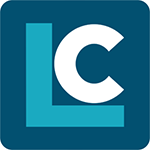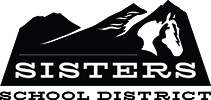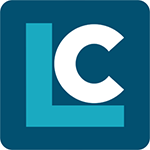High School / Classes / Language Arts
High school language arts classes encompass a comprehensive exploration of language, literature, communication, and critical thinking skills. Students engage in reading a diverse range of literary works, spanning classic literature, modern novels, poetry, and non-fiction. They analyze themes, characters, and literary devices to develop a deeper understanding of texts. Writing is a central focus, where students refine their ability to express ideas coherently and persuasively, while also mastering grammar, punctuation, and style. Language arts classes nurture students’ capacity to think critically and communicate effectively, enabling them to articulate their thoughts and engage thoughtfully with the world around them. Through discussions, essays, and creative projects, students enhance their language proficiency, foster a love for reading and writing, and cultivate skills essential for academic and personal success.
Credits: 1 / Grade: 9 / NCAA Approved
In this class students will think about who we have been, who we are, and who we could become. Students will read and analyze literature from a wide range of genres and historical contexts to gain an understanding of coming of age themes, issues of power in society, and the value and role of the individual in the world. Students will build on past instruction in grammar and language usage to engage in careful reading, critical literary analysis and thoughtful personal reflection and application. Students will write in narrative, maginative and expository forms. We will also focus on speaking and listening well in informal and formal settings.
Credits: 1 / Grade: 9 / NCAA Approved
In this class students will think about who we have been, who we are, and who we could become. Students will read and analyze literature from a wide range of genres and historical contexts to gain an understanding of coming of age themes, issues of power in society, and the value and role of the individual in the world. Students will build on past instruction in grammar and language usage to engage in careful reading, critical literary analysis and thoughtful personal reflection and application. Students will write in narrative, imaginative and expository forms. We will also focus on speaking and listening well in informal and formal settings. For this Honors class, the course work expectations will be more rigorous, There will also be additional readings and projects, and the pace will be quicker.
Credits: 1 / Grade: 10 / NCAA Approved
Throughout this course, we will consider what literature can teach us about where America has come from as a nation, as well as how we as global citizens can confront current global issues, as well as consider how we can make our world better for everyone. As we explore these ideas and reflect on our lives we will continue to build and grow our thinking, reading, writing, speaking, listening and collaboration skills. We will explore and discuss several global concepts, such as culture, identity, and community; beliefs, values, and education; politics, power, and justice; art, creativity, and imagination; science, technology, and environment. This course is designed to learn more about our country’s history, perspectives that differ from our own, and how an extraordinarily diverse group of people can coexist on Earth.
Credits: 1 / Grade: 10 / NCAA Approved
Throughout this course, we will consider what literature can teach us about where America has come from as a nation, as well as how we as global citizens can confront current global issues, as well as consider how we can make our world better for everyone. As we explore these ideas and reflect on our lives we will continue to build and grow our thinking, reading, writing, speaking, listening and collaboration skills. We will explore and discuss several global concepts, such as culture, identity, and community; beliefs, values, and education; politics, power, and justice; art, creativity, and imagination; science, technology, and environment. This course is designed to learn more about our country’s history, perspectives that differ from our own, and how an extraordinarily diverse group of people can coexist on Earth. This course will have more breadth and depth than a regular English class. We will read more literature and supplemental texts, and we will complete more written pieces. We will also discuss more complex concepts and practice advanced composition techniques.
Credits: 1 / Grade: 11 / NCAA Approved
Prerequisites/Requirements: Submittal/acceptance of program application
This integrated studies course is composed of a community of learners working together to gain a balanced, in depth understanding of the natural environment. Using an integrated course model, students will be provided with the educational experience and opportunity to study and learn about the natural environment through a hands-on format. Students will learn experientially by applying knowledge and skills to their immediate environment. Students will be given the opportunity and the necessary tools to create positive change within the school and surrounding environs. This course is committed to developing community partnerships that result in a shared vision of stewardship and a sense of appreciation and responsibility to the world around us. Readings will be American literature, focusing on the American Experience and the American Dream across cultures. Students will write in expository and/or persuasive modes, using primary and secondary sources to support assertions. Literary analysis, research skills, MLA format and documentation will prepare students to write a research paper that will become a formal speech to a community audience. Students will give either a persuasive or informative speech, following a speech-writing process. In addition, advanced techniques in oral and written communication will be taught. There is an additional cost for the fall expedition and for the spring expedition.
Credits: .5 / Grade: 11-12 / College Credit: Yes – COCC / NCAA Approved
This course emphasizes text-based academic writing and develops skills in expository and persuasive writing incorporating analytical reading, critical thinking, and credible sources. Students compose several essays using a variety of strategies to support a thesis, to address both known and unknown audiences, to seek and incorporate credible support, and to write in a formal academic style. Successful completion of the course may result in 3.0 college credits through Central Oregon Community College that are transferable to all Oregon public community colleges and universities.
Credits: 1 / Grade: 12 / College Credit: Yes, through AP Exam / NCAA Approved
AP Literature and Composition is designed to teach discussion, writing, and literary (representing World literature) exploration skills to that of a college freshman student. Students will use texts from various genres to hone their close reading, critical thinking, analytical writing and literary analysis skills through timed writings, essays, and extended papers. Students will consider a work’s structure, style, and theme as well as such smaller-scale elements as the use of figurative language, imagery, symbolism, and tone. The course includes active, intensive study of representative works from various genres and periods, concentrating on works of recognized literary merit. Careful attention to both textual detail and historical context will provide a foundation for critical interpretation. Writing assignments focus on the critical analysis of literature and include expository, analytical, and argumentative essays. Some writing assignments encourage students to write effectively under the time constraints they will encounter on the AP exam and on essay examinations in college courses in many disciplines, including English. The AP exam is within the first two weeks of May. There is no cost for the class, but there is a cost to take the AP exam. The AP exam is not required if taking the class. Many colleges and universities award credit based on exam scores.
Credits: .5 / Grade: 11-12 / NCAA Approved
Creative writing is designed to aid students in their creative expression, as well as in delivery of one’s writing. Students will explore their own creativity and experiment with various modes and genres of writing. They will also read and evaluate the effectiveness of writing. In a workshop model, students will read and respond to student work. They will learn literary vocabulary and interpret writing of varying styles. Students will complete a final portfolio of original works at the end of the term. The overall goal is to help students become more confident with their creative writing skills, as well as to create a positive environment where they feel comfortable and well-supported.
Credits: .5 / Grade: 11-12
This course is designed to introduce the student to the fundamentals of effective human communication in its verbal and nonverbal forms. Class topics will include interpersonal communication skills such as listening, handling conflict and negotiating group dynamics and public speaking skills, such as informative and persuasive speech giving, professional interviewing and messaging. Good communication skills are central to success in all areas of life. This course will give students a chance to practice and grow these skills in a well supported and comfortable environment.
Credits: .5 / Grade: 11-12
This course offers students an opportunity to learn about film as an art form and form of literature. The course is designed to address the Common Core standards in English, and therefore can be taken for either English or Elective credit. The curriculum is designed to provide students with a working understanding of basic film techniques and how they impact the message of a movie. Some concepts to be covered are historical significance, cultural significance, and aesthetic significance of film. These concepts will be studied in the larger context of film as a medium of communication, in which social values and the questions of ethical/unethical behaviors are explored.
Credits: .5 / Grade: 11-12 / NCAA Approved
This course offers students an opportunity to learn about film as an art form and form of literature. The course is designed to address the Common Core standards in English, and therefore can be taken for either English or Elective credit. The course is designed to provide students with a working understanding of basic film techniques and how they impact the message of a movie. Some concepts to be covered are historical significance, cultural significance, and aesthetic significance of film. These concepts will be studied in the larger context of film as a medium of communication, in which social values and the questions of ethical/unethical behaviors are explored.
Credits: .5 / Grade: 11-12
This course offers students an opportunity to learn about film as an art form and as a form of literature. The course is designed to address the Common Core standards in English, and therefore can be taken for either English or Elective credit. The curriculum is designed to provide students with a working understanding of basic film techniques and how they impact the message of a movie. These concepts will be studied in the larger context of the ways in which films both reflect the society in which we live, and also have the power to help shape that society. Sports films, in particular, often deal with social issues and the struggle of the marginalized to achieve equality. As such, the study of sports films affords students the opportunity to examine the past, understand the present and consider the future.
Credits: .5 / Grade: 11-12
This course will look at Disney/Pixar films as a way in which to understand our personal journey as well as the power of story as it impacts society as a whole. The course will develop on two different levels. One aspect will be looking at humans as “storytelling animals” who have a basic need to tell our own stories and connect to the stories of others. We will examine scientific research on the “storytelling gene” and the implications that story has for the human race. We will delve into the concept of the hero’s journey and the three-act story, in which we address the fact that in order to make it to the third act-the act that signifies the achievement of our goals–we must go through the second act–the act that challenges us and requires us to face conflict and setbacks. The other aspect of the class will be to apply this information to the study of films produced by Disney/Pixar. We will learn basic film terms and techniques, and look at the history of animated film–how it has evolved from its earliest iteration to the genre it is today. Our analyses will address the narrative components discussed above, as well as the special way in which Disney/Pixar has become a cultural force. We will look at the impact these films have had on not only transmitting our cultural values, but in many ways shaping them.
Credits: .5 / Grade: 11-12
Throughout this course, students explore several essential questions: What can we learn from the fortitude of others? How can we foster fortitude in ourselves? And how can we create more fortitude in our culture? As students strive to answer these questions, they immerse themselves in inspiring stories of strength about diverse groups of people. They also weave these stories together through daily discussions, formal presentations, personal narratives, informative essays, and academic arguments. In the end, this course hopefully helps students see that thinking, reading, writing, and conversing are all vital sources of fortitude—the sort of fortitude that makes the good times better and the tough times transformative.
Credits: .5 / Grade: 11-12
Students will explore how and why stories about heroes and villains have evolved in Western culture over thousands of years. More specifically, students who take this course read graphic novels, analyze complex images, and interpret the written word. They tell stories, write essays, craft arguments, and they explore how comics can help humans better understand their lives, their world, and themselves.
Credits: .5 / Grade: 11-12
In this course we will read the first four books of the Harry Potter series, asking the question: how does Harry Potter help us live in the world? Throughout this course we will read the texts through different perspectives, have deep discussions about what the texts call people to do. Course Essential Questions: How does Harry Potter help us live in the world? How can we apply the practice of Lectio Divina to the text to better understand its function in the world and in our lives? How does reading HP through a specific lens create deeper meaning for us?
Credits: .5 / Grade: 11-12 / NCAA Approved
World Literature at Sisters High School is designed to teach multi-level discussion, writing, and literary exploration skills. Students will read texts from a variety of genres from around the world and explore different cultures. Students will then use these texts to practice their critical thinking, analytical writing and literary analysis skills through different modes of discussion, and multiple modes of writing. Overall, the goal is that students will leave this class more competent, confident, and capable. Students will find this course to be challenging, but will feel well-supported. A student does not need to take World Literature A before taking World Literature B.











